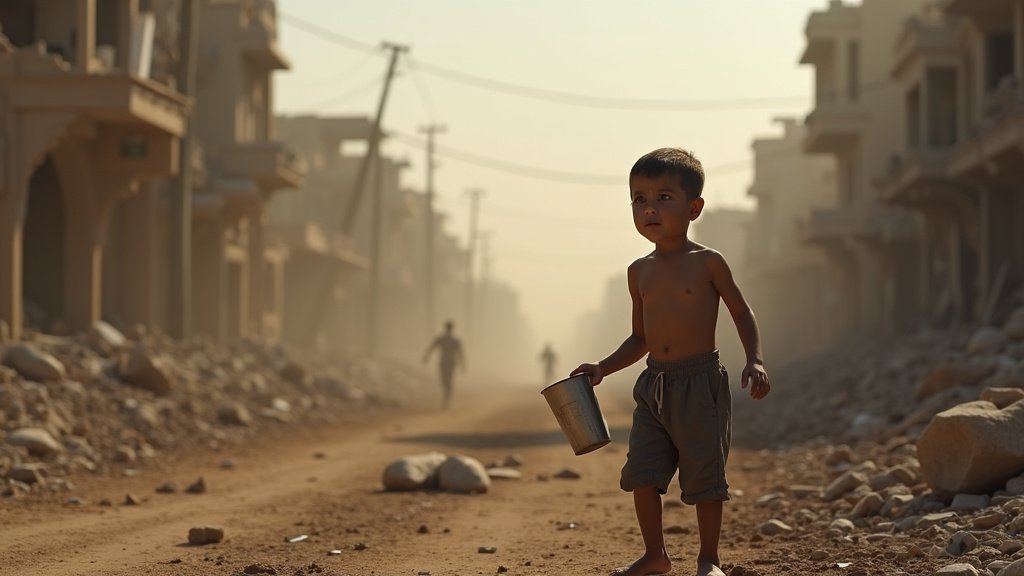The United Nations has officially confirmed that famine conditions have taken hold in Gaza City and surrounding areas, marking a critical escalation in the ongoing humanitarian crisis. A new analysis from the Integrated Food Security Phase Classification (IPC), a body comprising UN agencies and NGOs, declared famine based on “reasonable evidence,” stating that thresholds for extreme food deprivation, acute malnutrition, and starvation-related deaths have been breached. This marks the first official famine declaration in the Middle East region since the IPC’s establishment in 2004.
The report, released on a Friday, projects that famine conditions are likely to spread to the central and southern governorates of Deir Al Balah and Khan Younis by the end of September if hostilities ceasefires and unhindered humanitarian access are not urgently implemented. The dire situation means that over half a million people in Gaza are now facing catastrophic hunger, characterized by widespread starvation, destitution, and preventable deaths. Experts warn that these “avoidable deaths will increase exponentially” without immediate intervention.
Man-Made Catastrophe and International Blame
UN agencies, including the Food and Agriculture Organization (FAO), UNICEF, the World Food Programme (WFP), and the World Health Organization (WHO), have collectively stressed that the famine is “entirely man-made” and a direct result of ongoing conflict and restrictions on humanitarian aid. Philippe Lazzarini, Commissioner-General of UNRWA, stated that “months of warnings have fallen on deaf ears” and blamed Israel for deliberately blocking essential supplies. UN Emergency Relief Coordinator Tom Fletcher described the situation as a “moral outrage” and a “man-made catastrophe,” highlighting that food was stacked at borders due to “systematic obstruction.”
Israel has vehemently rejected these findings, with its foreign ministry calling the IPC report an “outright lie” and accusing the body of using “Hamas lies” and lowering its criteria for famine declaration. Israeli officials argue that significant amounts of aid have entered Gaza and that the problem lies with distribution and looting by armed gangs, rather than Israeli obstruction.
Alarming Statistics on Malnutrition and Hunger
The IPC analysis indicates that acute child malnutrition has reached unprecedented levels. In July alone, over 12,000 children were identified as acutely malnourished, a sixfold increase since the start of the year. Nearly one in four of these children suffered from severe acute malnutrition (SAM), the deadliest form. By the end of September, it is projected that over 640,000 people will face catastrophic levels of food insecurity (IPC Phase 5), with an additional 1.14 million in Emergency (IPC Phase 4) and nearly 400,000 in Crisis (IPC Phase 3). Malnutrition rates have also surged among pregnant and breastfeeding women, with over 40% screened in Save the Children clinics found to be malnourished, a significant increase since aid and goods were severely restricted.
Background and Critical Need for Aid
The conflict, which began in October 2023, has severely degraded Gaza’s health system, reduced access to clean water and sanitation, and led to widespread displacement. Humanitarian organizations report extreme challenges in delivering aid due to obstructions at entry points, fuel shortages, checkpoints, and insecurity. Despite Israeli claims of facilitating aid, over 100 international NGOs have stated they have been unable to deliver lifesaving supplies since early March, with millions of dollars’ worth of goods stranded.
United Nations Secretary-General António Guterres has urged an “immediate ceasefire” and called for Gaza to be “truly flooded with lifesaving aid,” describing the situation as a “moral outrage.” The UN Security Council has passed a resolution demanding an immediate ceasefire for Ramadan and the release of hostages, though the US abstained.
Trending Global News
This critical development is part of a global trending news cycle focusing on humanitarian crises and international law. The famine confirmation puts immense pressure on international actors to address the situation, with experts emphasizing that accountability for the unfolding catastrophe is paramount. The scale of the crisis underscores the urgent need for an immediate, large-scale humanitarian response to prevent further loss of life and alleviate the suffering of the Palestinian population in Gaza.




